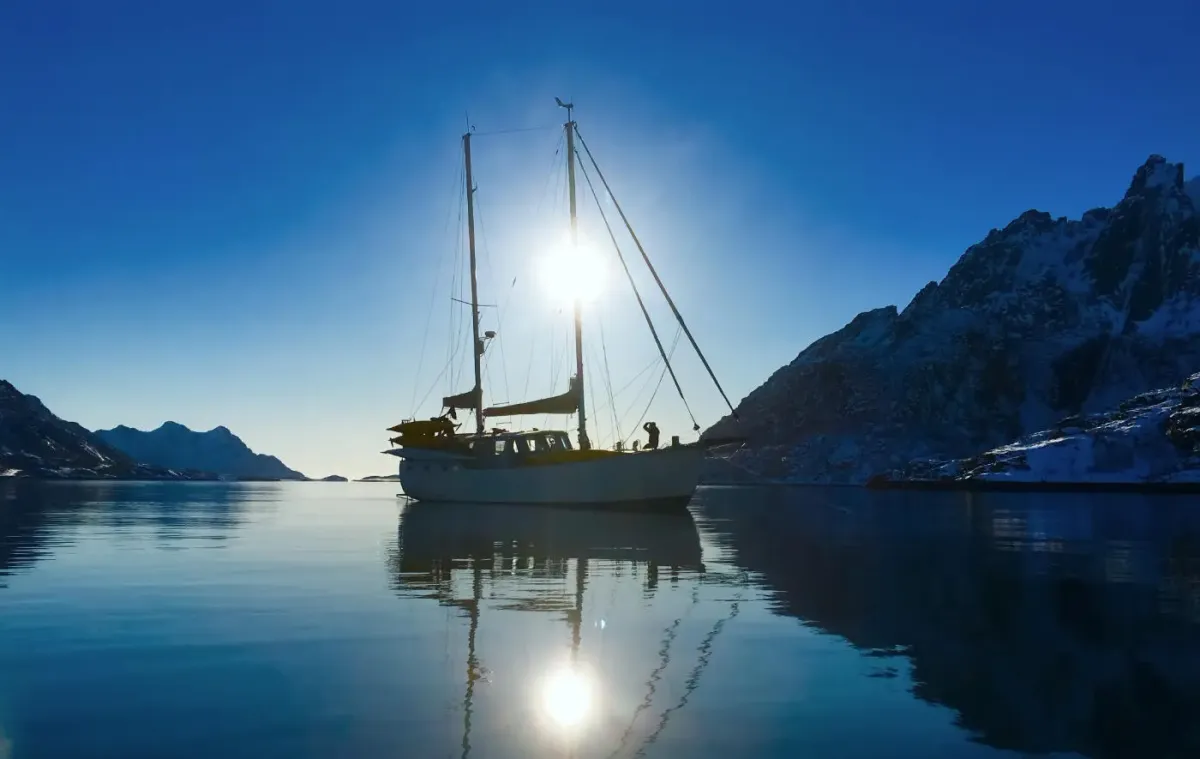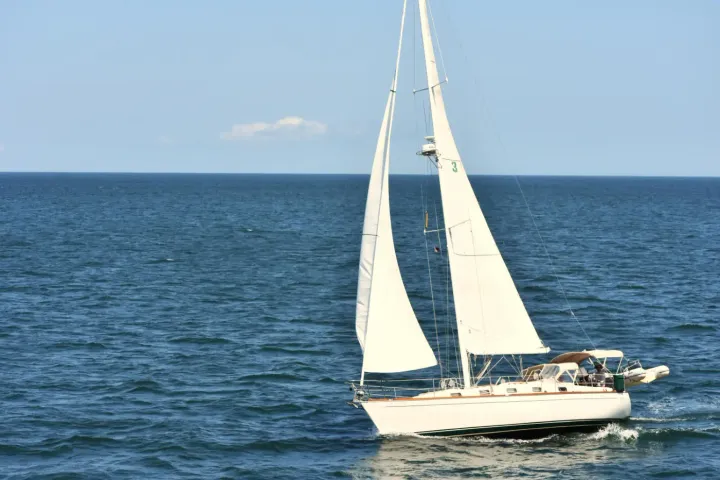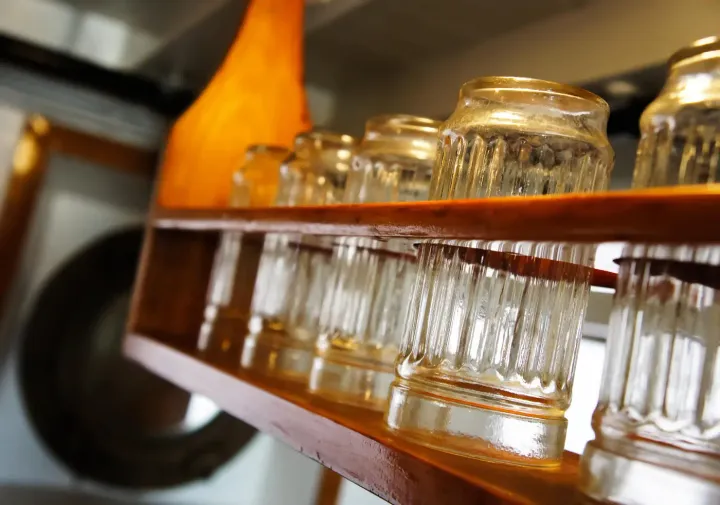Wondering how to stay safe and enjoy cruising in chilly weather? If so, we have all the answers.
Whilst summer sailing is often idolized, sailing in the winter whilst wrapped up cosy and warm, staring out over the misty horizon, and sipping on a steaming mug of tea can be one of life's greatest joys.
However, it is especially important to take precautions, prepare well, and stay safe during the winter months. From investing in proper winter gear to stocking up on propane gas, there's a lot that you need to consider to better enjoy sailing through chilly weather.
Best tips for better cruising in chilly weather
Within this article, we will share our best tips for better cruising in chilly weather. To make it easier to navigate, we will split our tips into two different sections: technicals for sailing during colder months and maintaining personal comfort in chilly weather.
Technicals for Sailing During Colder Months
The most important thing that you can do when sailing during the winter months is making sure that all of your boat gear is winter-ready. There's a lot to consider so hold on tight!
Fill up your tanks as often as possible
A main concern whilst sailing during colder weather is that hoses may freeze or that the water supply may need to be turned off in order to protect the pipes at fuel berths. Plus, full fuel tanks can bring down the likeliness or a diesel bug forming. As such, refill your fuel and water tanks as often as you can and pay attention to berth opening hours.
Stay on the boat
Unless you have a wet or dry suit on handy, you should absolutely not go in the water during the winter. Once the temperature has plummeted, you are at a higher risk for cold shock and your ability to stay conscious in the water decreases. Instead, play it safe and stay on deck.
Keep the batteries topped up
When the weather is cold, starting up a diesel engine will require more power, meaning that you will need to keep the batteries topped up. If you don't fancy taking them home for a recharge then using small solar panels can be a great fix.
Keep the pontoon mooring clean
Pontoons can grow algae, moss, and lichen during the colder months, making walking on deck a little more dangerous. As such, you will need to keep the pontoon mooring clean, either by using something similar to Ronseal’s Decking Cleaner or by scrubbing it with salt water.
Check the engine
During colder weather, it becomes even more important to check your engine regularly. You will need to make sure that the coolant is topped with antifreeze, and if it's likely that the temperature will be dramatically low, you might want to run some antifreeze through the raw-water system.
Keep the decks free from ice
Ice on decks can be one of the most dangerous things to come out of cold-weather sailing, so it is important to scrub them down with salt water as often as you can. Making this a regular part of your winter routine is one of the best things you can do.
Change out the gas bottle
You also might want to consider swapping out your regular butane gas bottle for a propane one due to the fact that butane has a lower freezing point. This ensures that it isn't as sluggish, and works more efficiently in the cold. Just be sure to take a spare bottle as it can be more difficult to find a refill source in the winter.
Keep everything as dry as possible
Keeping the lines, life jackets, bedding and cushions dry, and taking sails home to dry becomes even more important during the colder months as otherwise, they could be left to fester and grow mould. Plus, keeping the lines dry will both keep your hands warmer and stop the lines from freezing.
Check things out with your insurer
You should check with your insurer as to whether or not you are covered to sail year-round. This is another one of those things which we often forget about, but it is incredibly important, and is one of our best tips for better cruising in chilly weather.
Keep the condensation at bay
Sailing during the winter means that condensation is a lot more likely, but you should try to minimize this as much as possible. You can insulate the inside of the hull and add headlining to the top, making the boat both stay warmer and dryer, add some window covers, and throw in a dehumidifier.
Then, you might also want to consider getting a cockpit tent so that you can keep a hatch cracked open to let some air in.
Consider taking shorter passages
When the days are shorter and you have less daylight to work by, you might want to consider taking shorter passages and saving the long-hauls for the summer months. If you can avoid travelling when it's dark during winter, that would be better.
Staying Comfortable Whilst Sailing in Chilly Weather
But there's no point in doing any of the above if you're going to be uncomfortable during the ride. Stocking up on winter gear and hot beverages are some of the best things you can do to make the journey easier.
Stock up on hot drinks and food
There's nothing like a hot cup of coffee to bring you life on a cold sailing morning. Heat flasks are a great option to always keep a hot beverage by your side, and a nice hot chocolate is sure to always be a good pick-me-up. Along with that, hot food such as pasties, bread rolls, and pies is always a great way to warm up.
Don't eat large meals
Whilst you're going to want to consume as many calories as your body needs, you should avoid eating large meals. This is because a large meal takes extra energy to digest - instead, eat little and often, and don't forget to pack extra energy and chocolate bars.
Purchase good quality winter gear
Stocking up on spray-tops, waterproof bibs, dry suits, sailing boots, and offshore jackets is all going to be incredibly important for keeping you warm and dry. Ignore summer sailing gear - winter sailing gear is where you're really going to want to invest.
Layer for the weather
Of course, when sailing during the colder months you're going to want to dress properly. Put on several base- and mid-layers made from merino wool or synthetic blends, along with wool socks, a stocking cap, and perhaps even a heavy top layer. Then, top it off with a snood and you'll be golden.
Invest in touchscreen gloves
To avoid having to take your gloves off every time that you need to use your phone, why not consider investing in touchscreen gloves? Despite how little you think you might use them, they're bound to come in handy (no pun intended) whenever you get an unexpected phone call.
Wear sunglasses and suncream
The winter sun can be brutal, making it even more important to wear proper sunglasses and suncream. Squinting at the low winter sun for hours during the day can result in many problems later in life, as can not properly covering yourself with high-SPF cream. Bear in mind that especially during the winter, mineral suncream is best.
Keep the extremities warm
You should then invest in some disposable hand and feet warmers - especially as you could then use these anywhere on the body. Wrapped in a scarf or tucked against your bag, these nifty little warmers are sure to become your best friend. Alternatively, you could purchase some 'click' warmers: these can be used time and time again and just need to be boiled to reactivate the chemical reaction when needed.
Consider sleeping in your gear
Rather than constantly changing between clothes, why not keep all the warmth you've built up and simply sleep in your gear? Swapping out any damp items for something warm and dry will have you sleeping like a baby.
Invest in a down quilt
Another thing you can to do make sure that you sleep soundly is to invest in a down quilt. This will keep you nicely insulated and also last a long time, ensuring that you can stay warm during any other winter sailing trips to come.
Stay active
Another one of our best tips for better cruising in chilly weather is to stay active. This will help you keep warm, along with being good for you in general. Work hard to keep the blood flowing around your body and you'll feel better for it.
And now, you're ready to hit the water!



